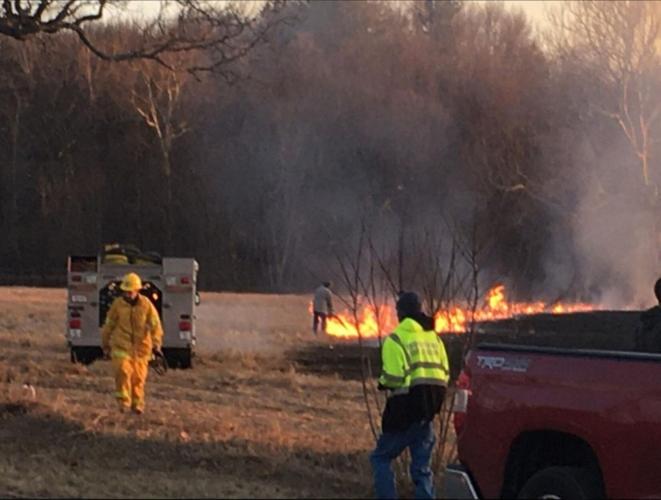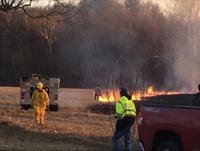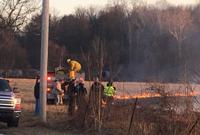Starting next week, the annual statewide ban prohibiting residential brush burning begins.
The statewide burn ban begins March 16, and runs until May 14, state Department of Environmental Conservation Commissioner Basil Seggos said in a statement.
“DEC is reminding residents that conditions for wildfires are heightened in springtime. It’s when most wildfires occur,” Seggos said.
Open burning of debris is the largest cause of spring wildfires. When temperatures are warmer and debris and leaves from the fall dry out, wildfires can start and spread easily and be further fueled by winds and a lack of green vegetation, Seggos said.
Residents clearing brush from their yards is the No. 1 cause of brush fires, Claverack Fire Chief Brennan Keeler said Tuesday.
“The state’s burn ban has slowed down the number of brush fires, but we still get several every spring,” Keeler said.
“People need to be educated better about the dangers of open burning. The vegetation is already dry, plus you add wind to that, and you have an out of control fire,” Leeds Fire Chief Tom McCullough said.
In 2020, DEC forest rangers extinguished 192 wildfires that burned more than 1,122 acres, Seggos said.
The way brush fires are fought depends on where they are located. Many fire departments now have special vehicles that can travel through a field to get to where the fire is, Keeler said.
Manpower is the key to fighting brush fires. The more people working to keep the fire from spreading, the faster it can be contained, McCullough said.
There have been instances where brush fires have spread to power lines or buildings. Any outside fire near a residence is a risk, McCullough said.
New York first enacted tough restrictions on open burning in 2009 to help prevent wildfires and reduce air pollution, Seggos said. Forest rangers, DEC police officers and local authorities enforce the burn ban.
Violators of the state’s open burning regulation are subject to criminal and civil enforcement actions with a minimum fine of $500 for a first offense.
To report environmental law violations call 1-800-TIPP DEC (1-800-847-7332), or report online on DEC’s website, Seggos said.











